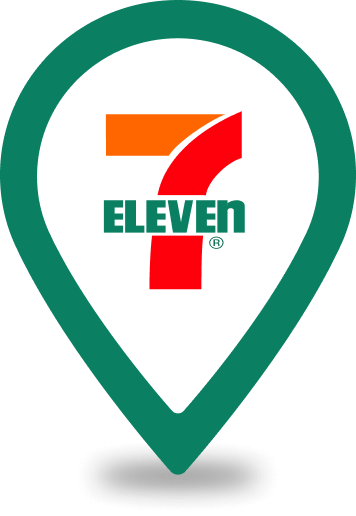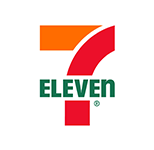About 7-Eleven
Mission & Vision
Mission
To make daily life easier by providing modern convenience.
Vision
Our vision is to be the best retailer of convenience for emerging markets.
Core Values
Teamwork
We foster an environment of synergy to attain the goals of the organization through active participation and mutual respect.
Integrity
We are honest and trustworthy to our fellow employees, customers and business partners.
Reliability
We deliver what we promise.
Customer Focus
We put our customer first.
Data-driven
We make decisions based on data.
7-Eleven Philippines Milestones
1982

Philippine Seven Corporation (PSC) is established and signs its master license to operate 7-Eleven stores in the country.
1984
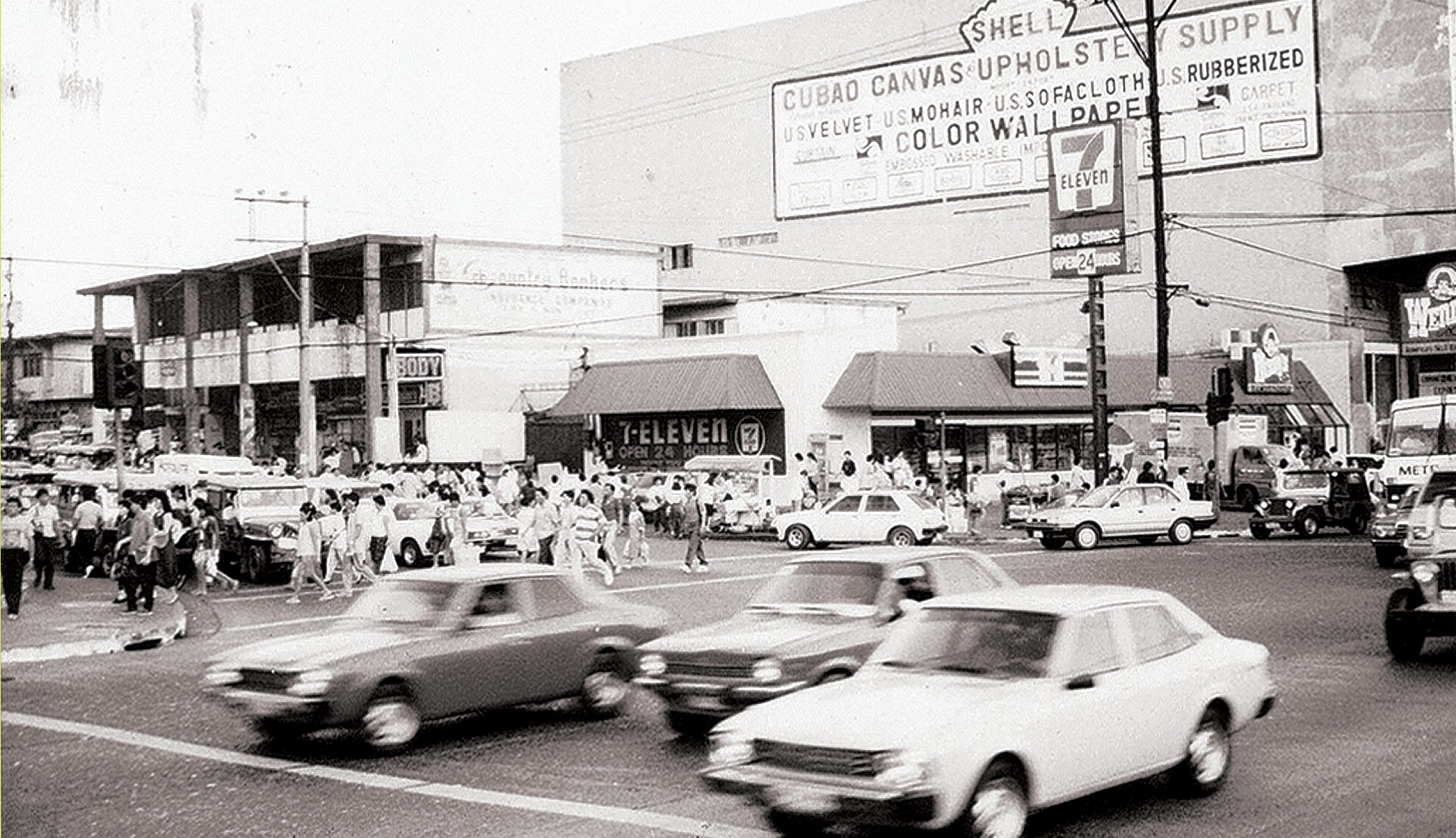
The first 7-Eleven store opens at EDSA corner Kamias St., Quezon City.
1989
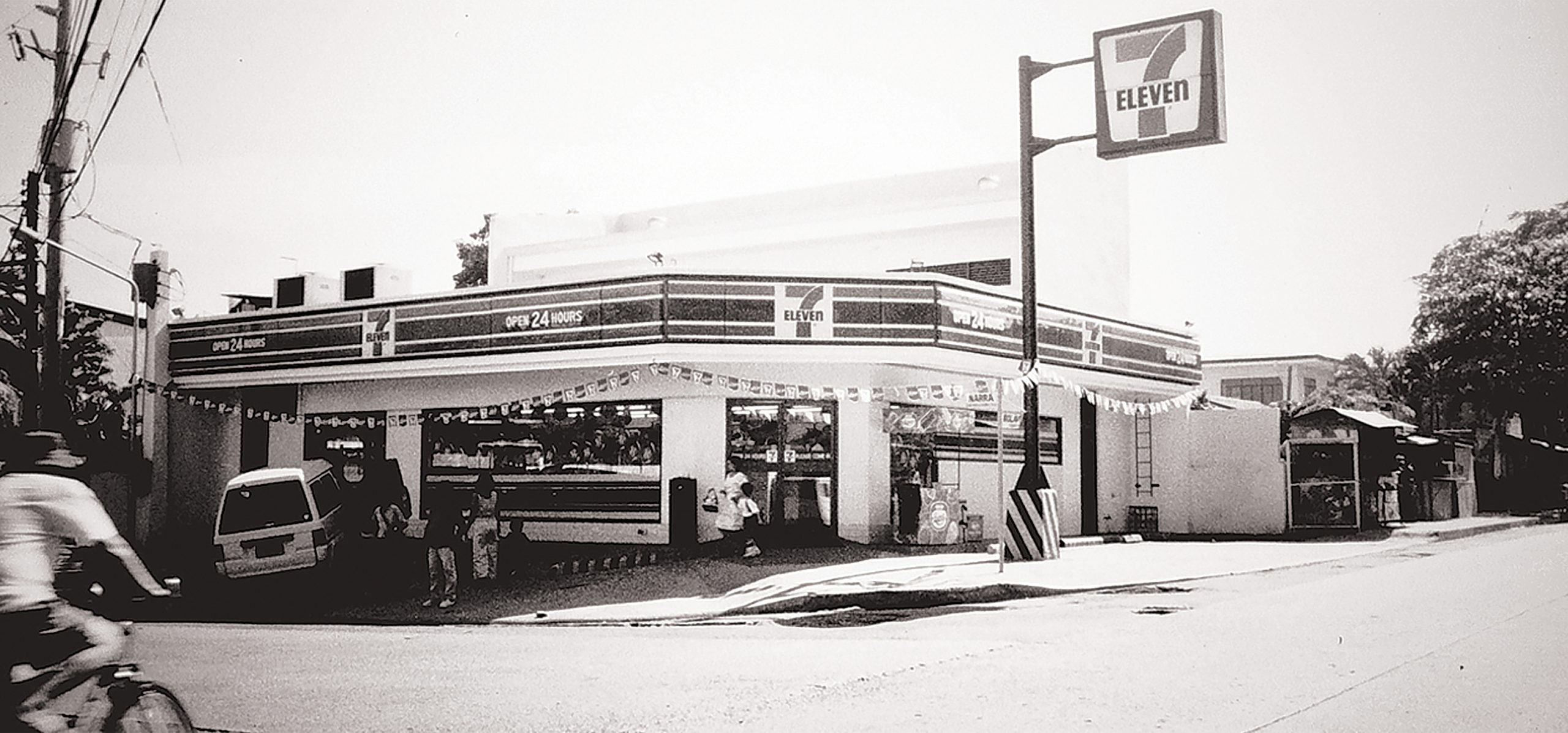
This year marks the first year PSC turns a profit with a total of 9 stores in operation.
1998
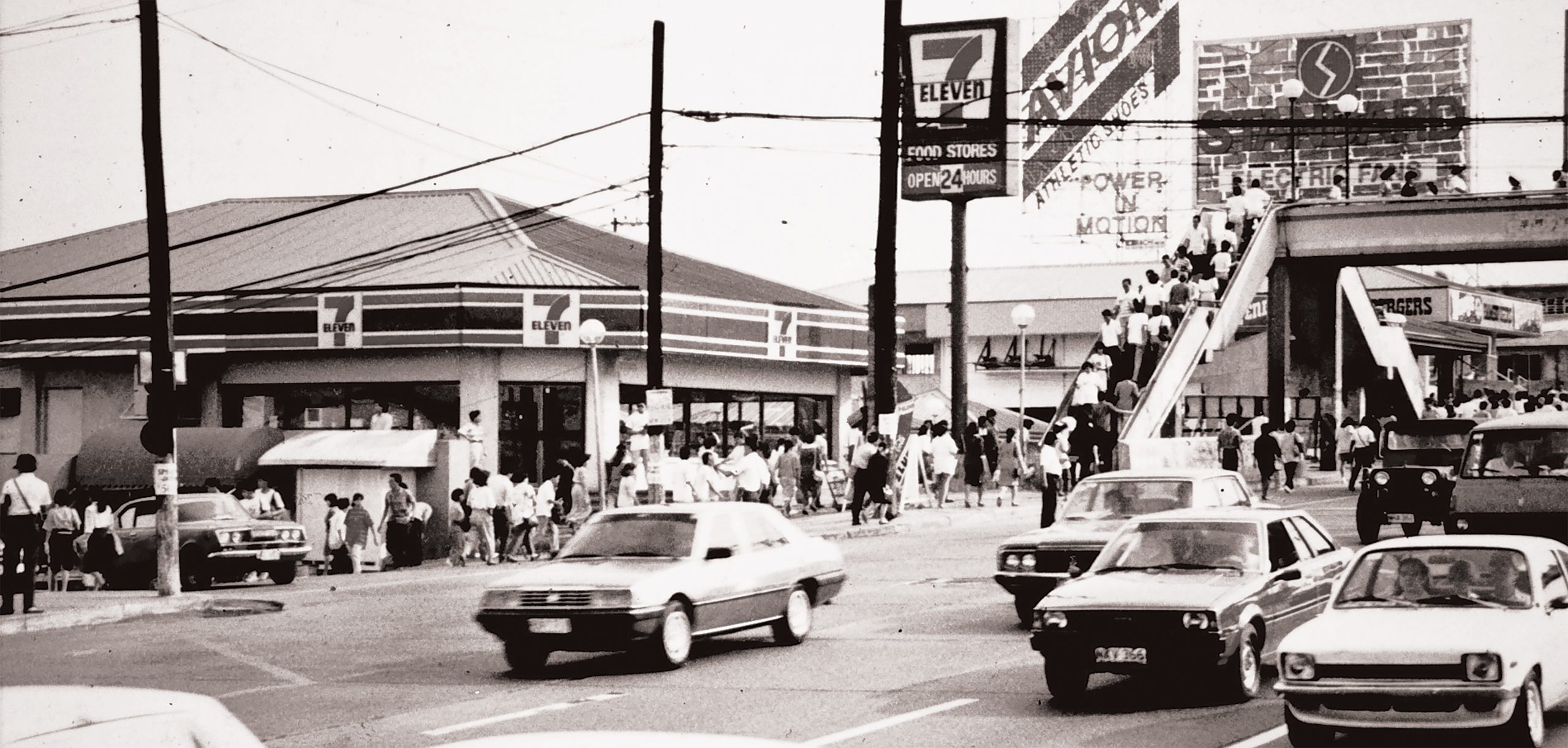
PSC, now with over 100 stores, launches its initial public offering, with shares offered at PHP 4.40.
1998
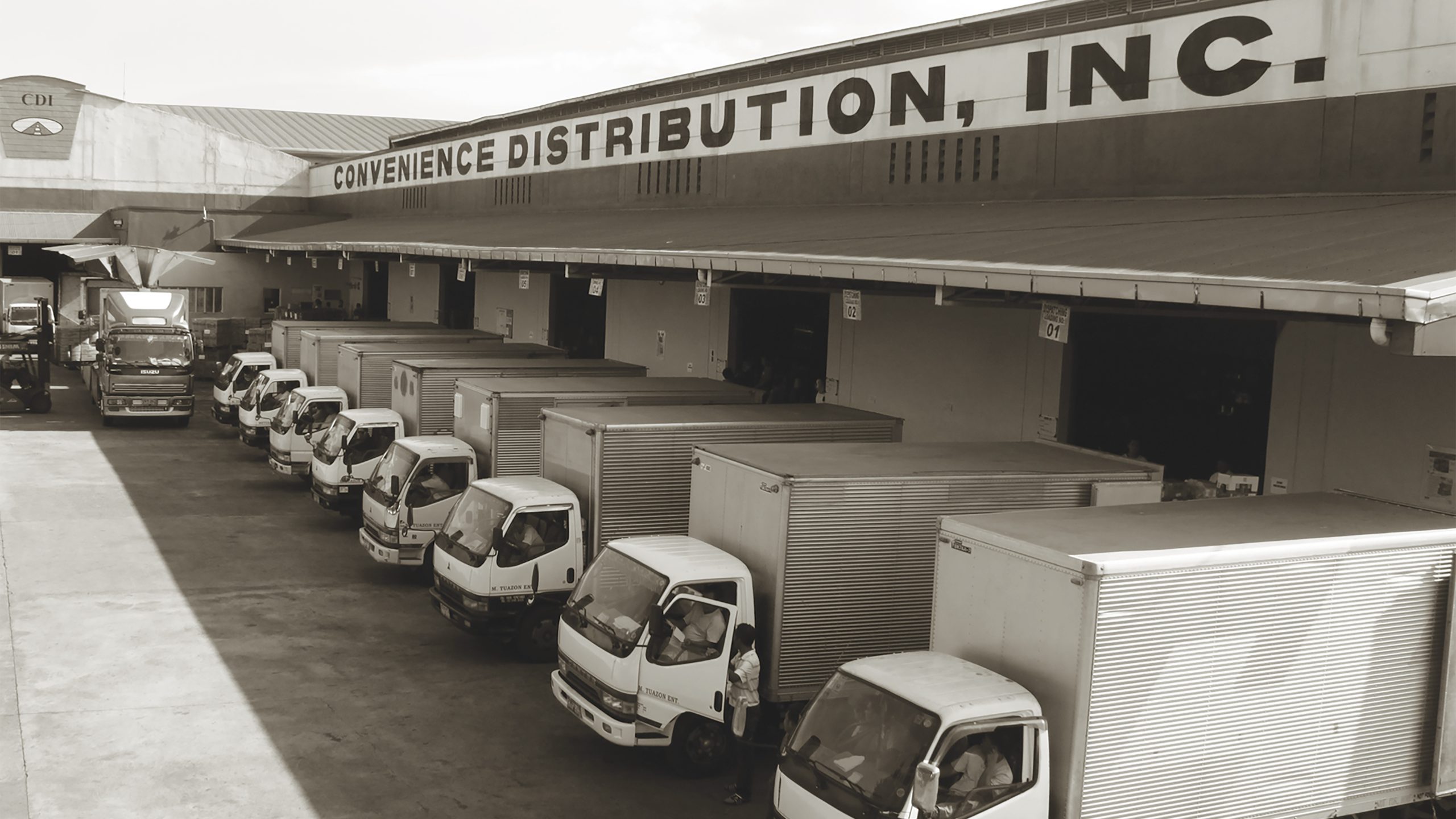
PSC's wholly owned subsidiary, Convenience Distribution, Inc. (CDI), is opened to provide centralized warehouse and distribution system to service its 7-Eleven's stores.
2000
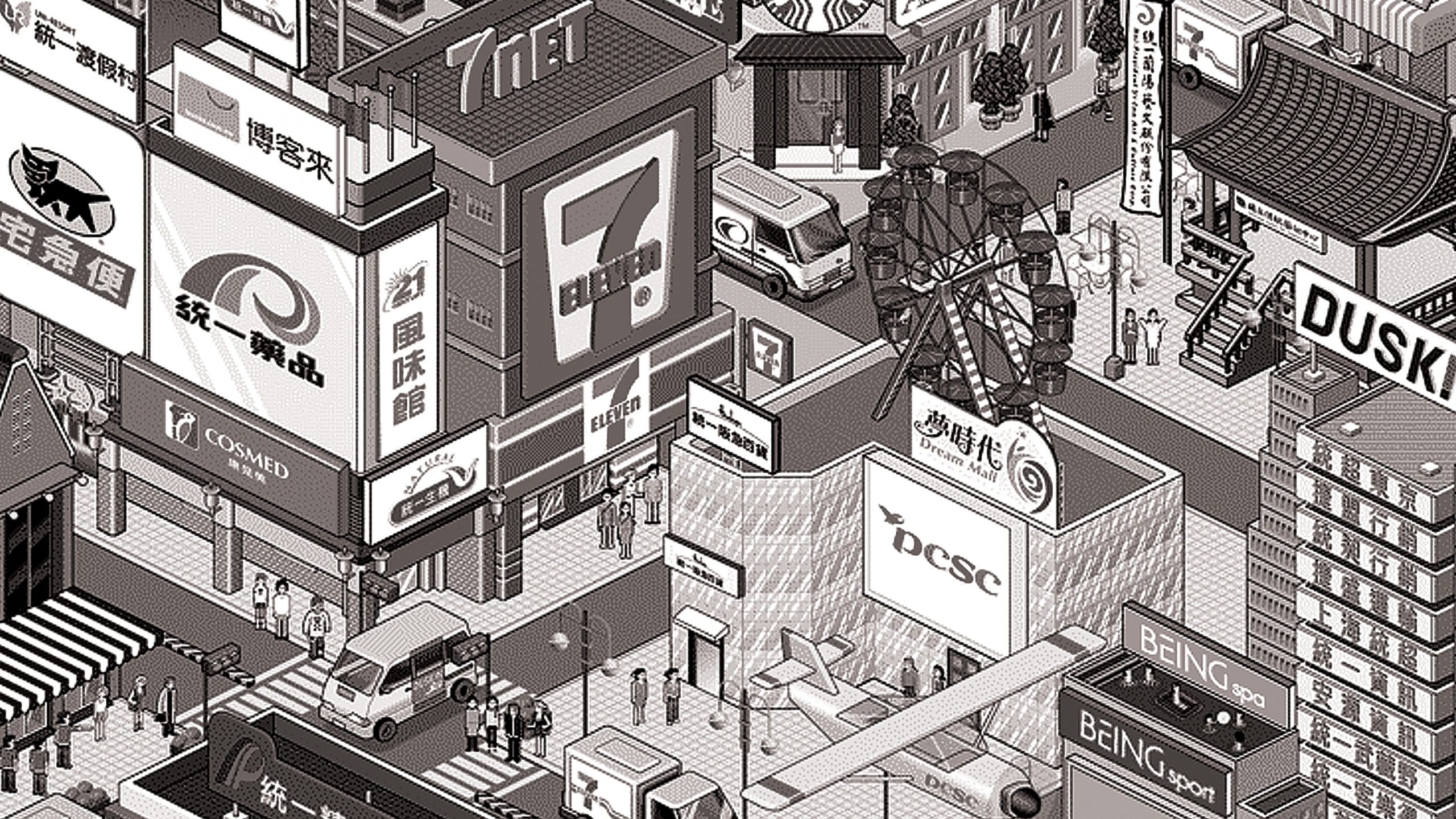
President Chain Store Corp. (PCSC) purchases 50.4% of PSC's common shares at PHP 8.30 per share, which helped strengthen the company and enabled it to pursue its store expansion plans.
2005

PSC launches full scale franchising and ends the year with 85 franchise stores out of over 200 stores.
2007
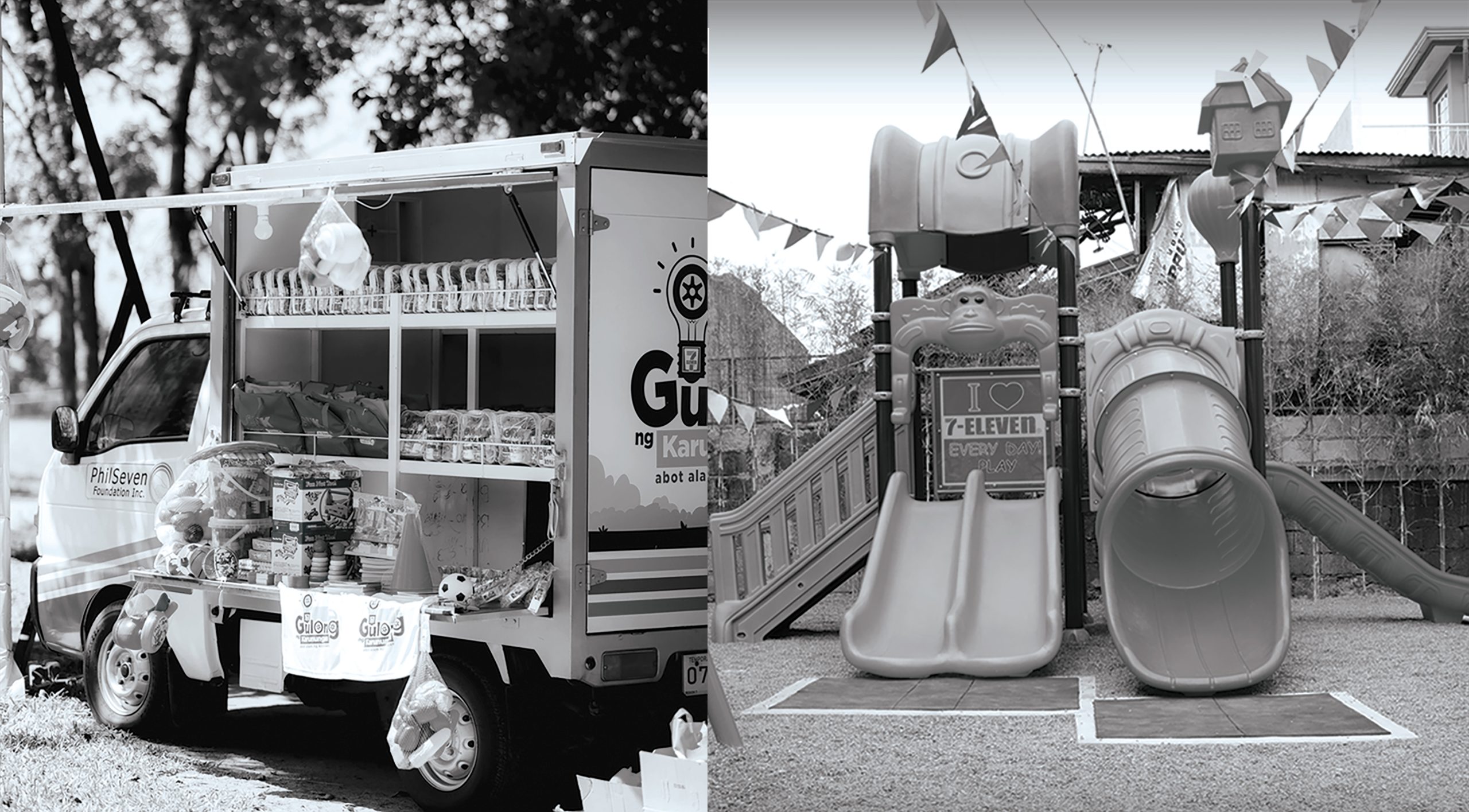
PSC's board of directors established PhilSeven Foundation Inc., the company's corporate social responsibility arm.
2012
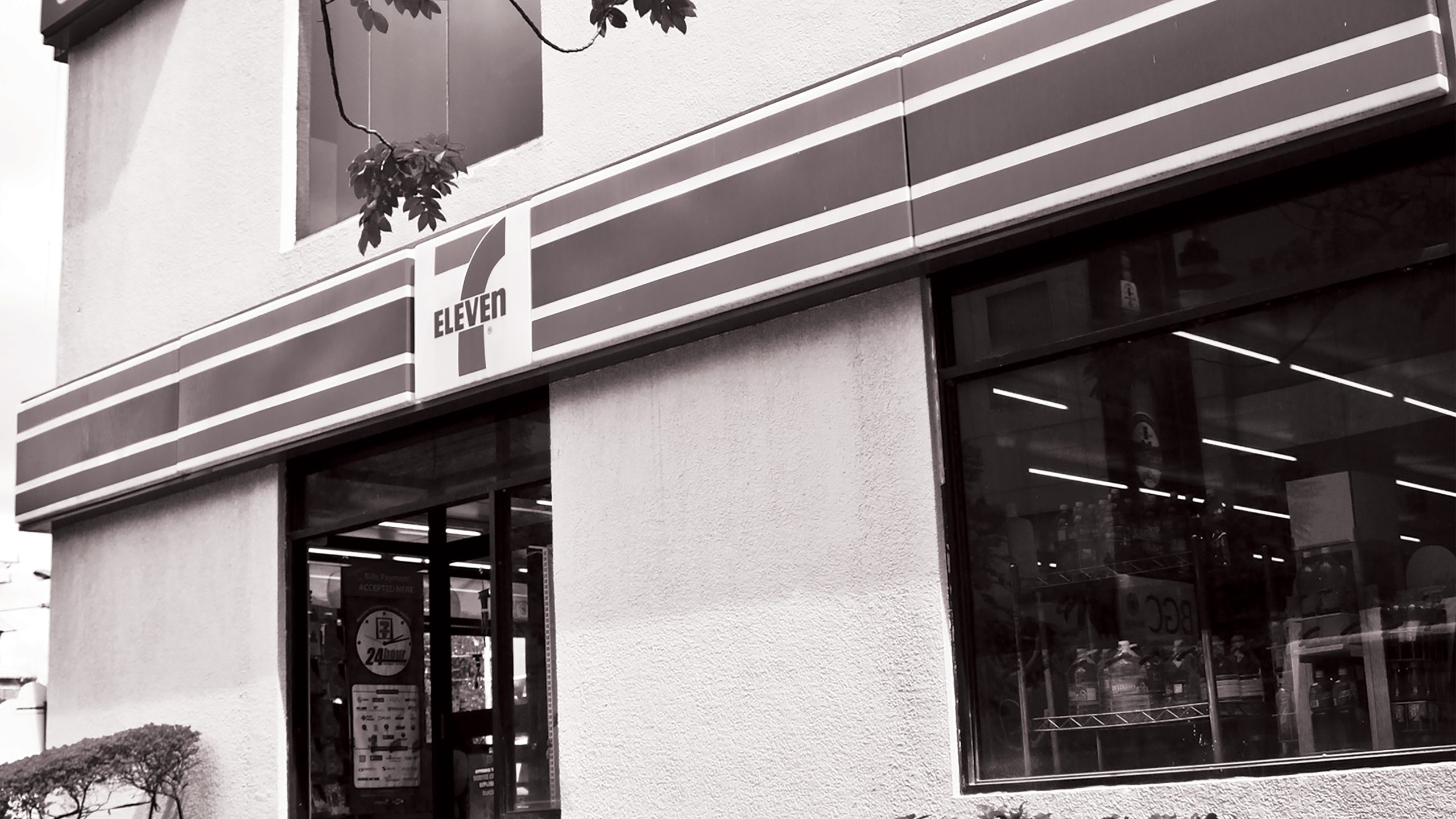
PSC opens its 711th store in the country.
2012
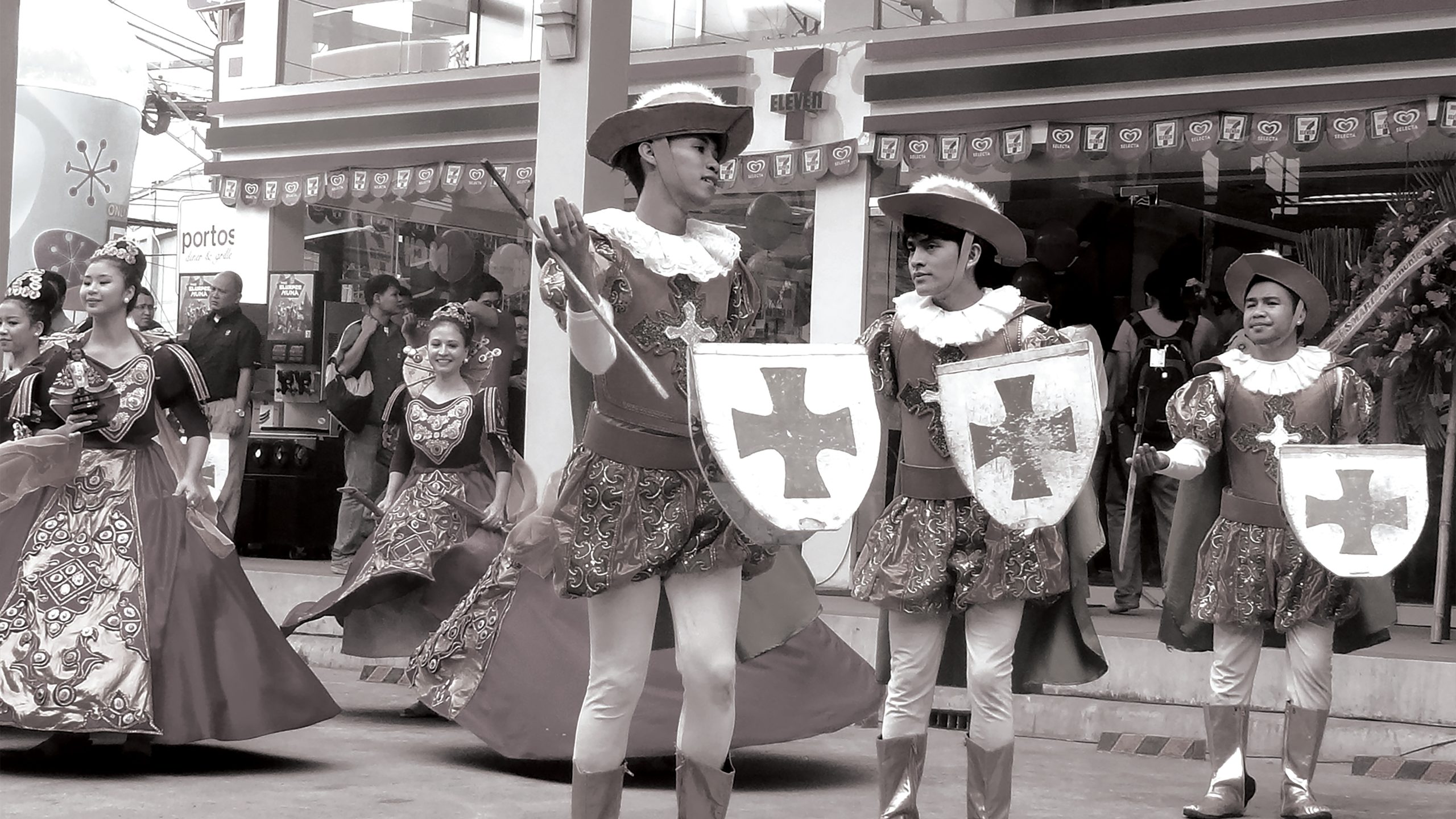
7-Eleven expands beyond Luzon & crosses over into Cebu, the Queen City of the South.
2013
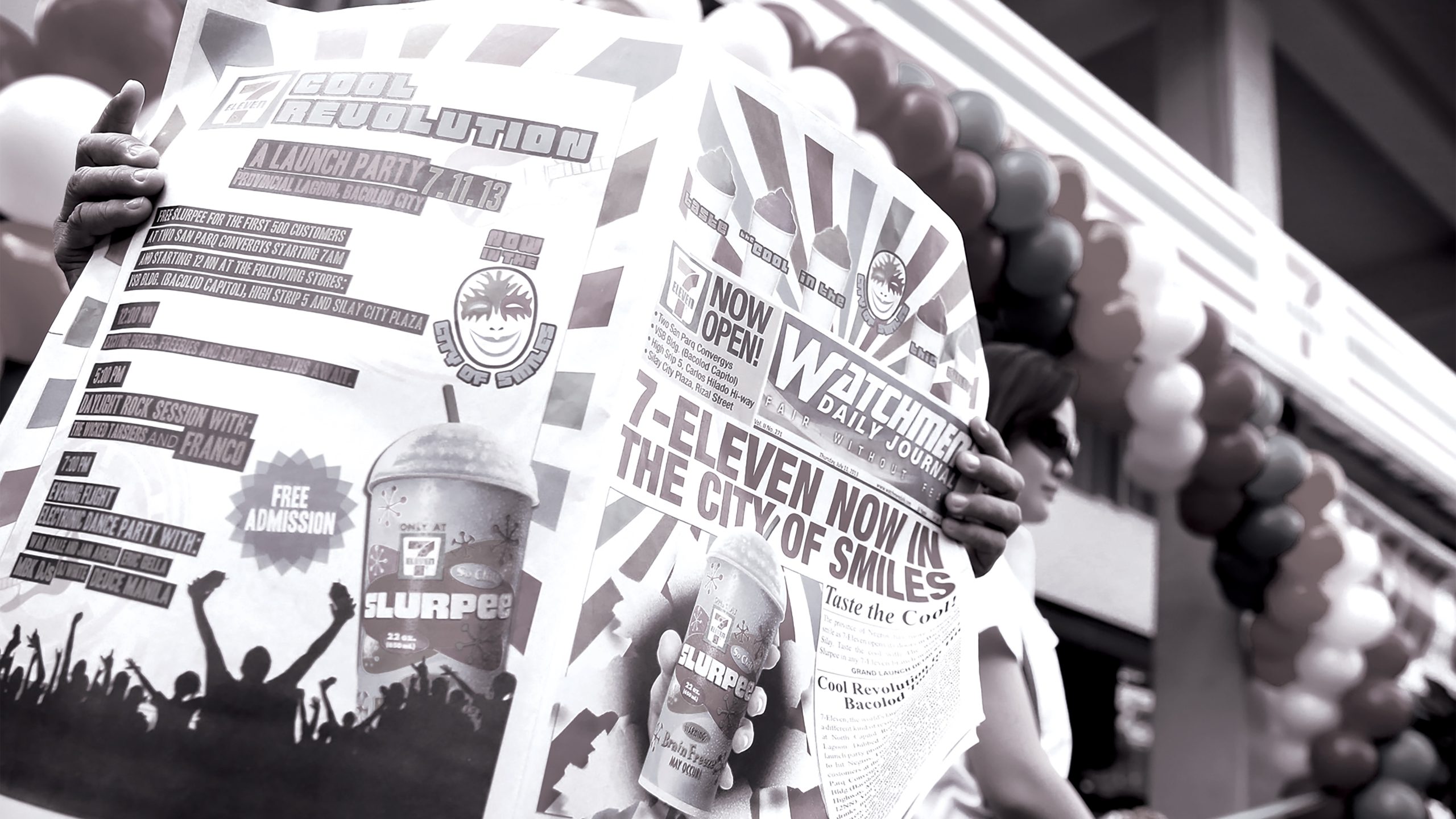
Expansion continues in Visayas as 7-Eleven opens in Bacolod, the City of Smiles.
2013
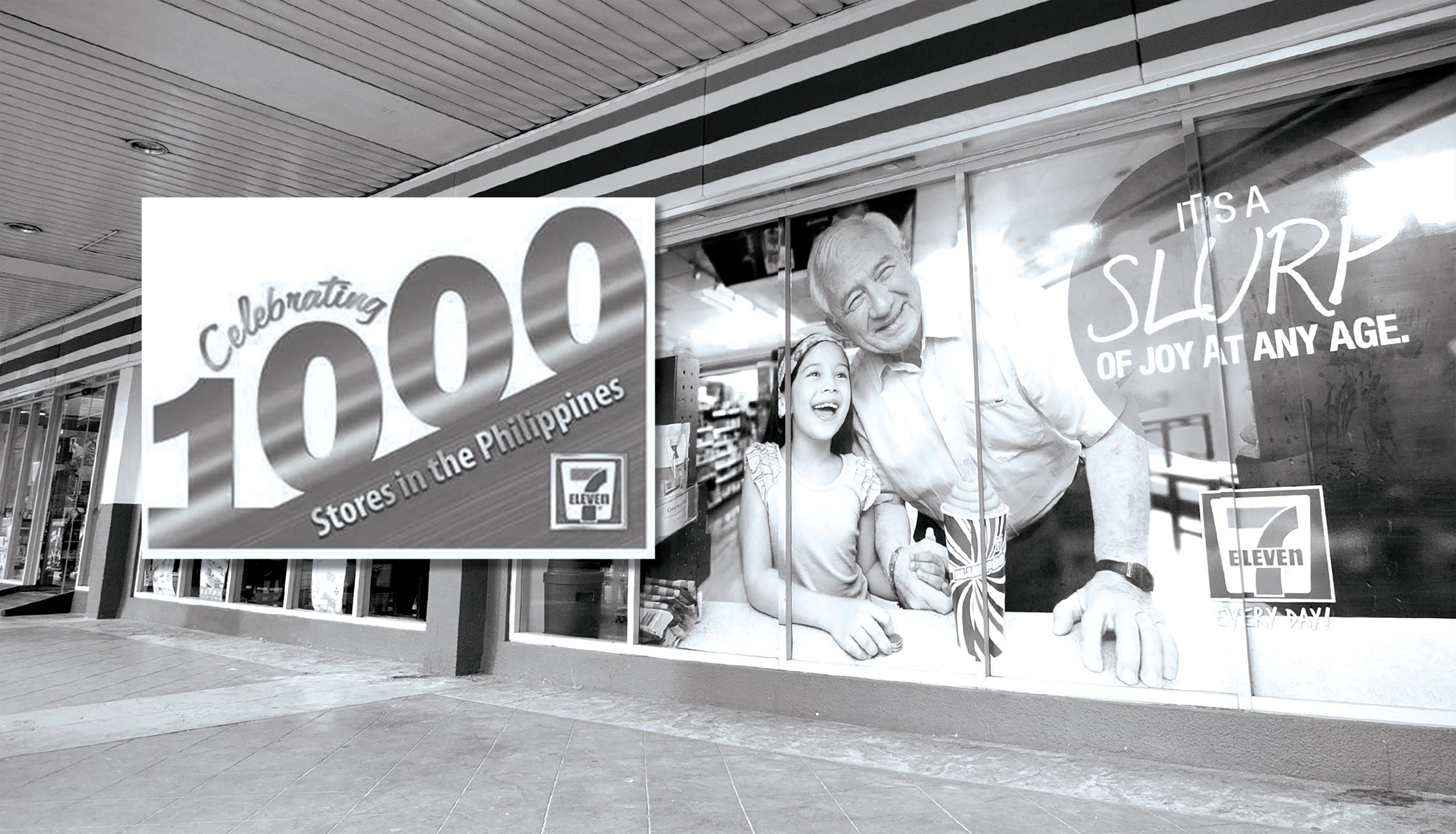
PSC celebrates a major milestone as it opens 1000th store at Greenfield District, Mandaluyong City.
2013
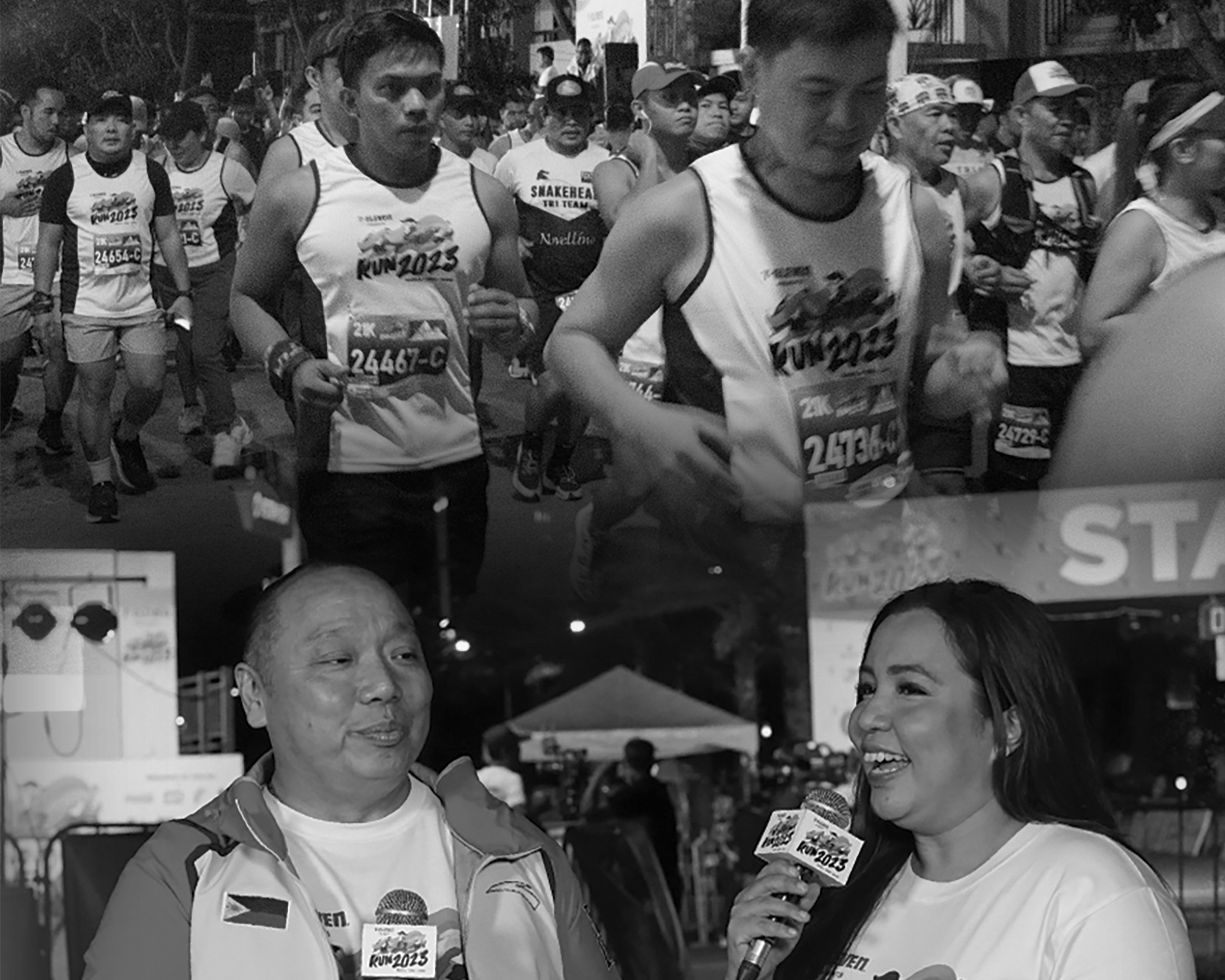
The 7-Eleven Run took place at Filinvest City, Parañaque, featuring multiple race categories and widespread community participation.
2014
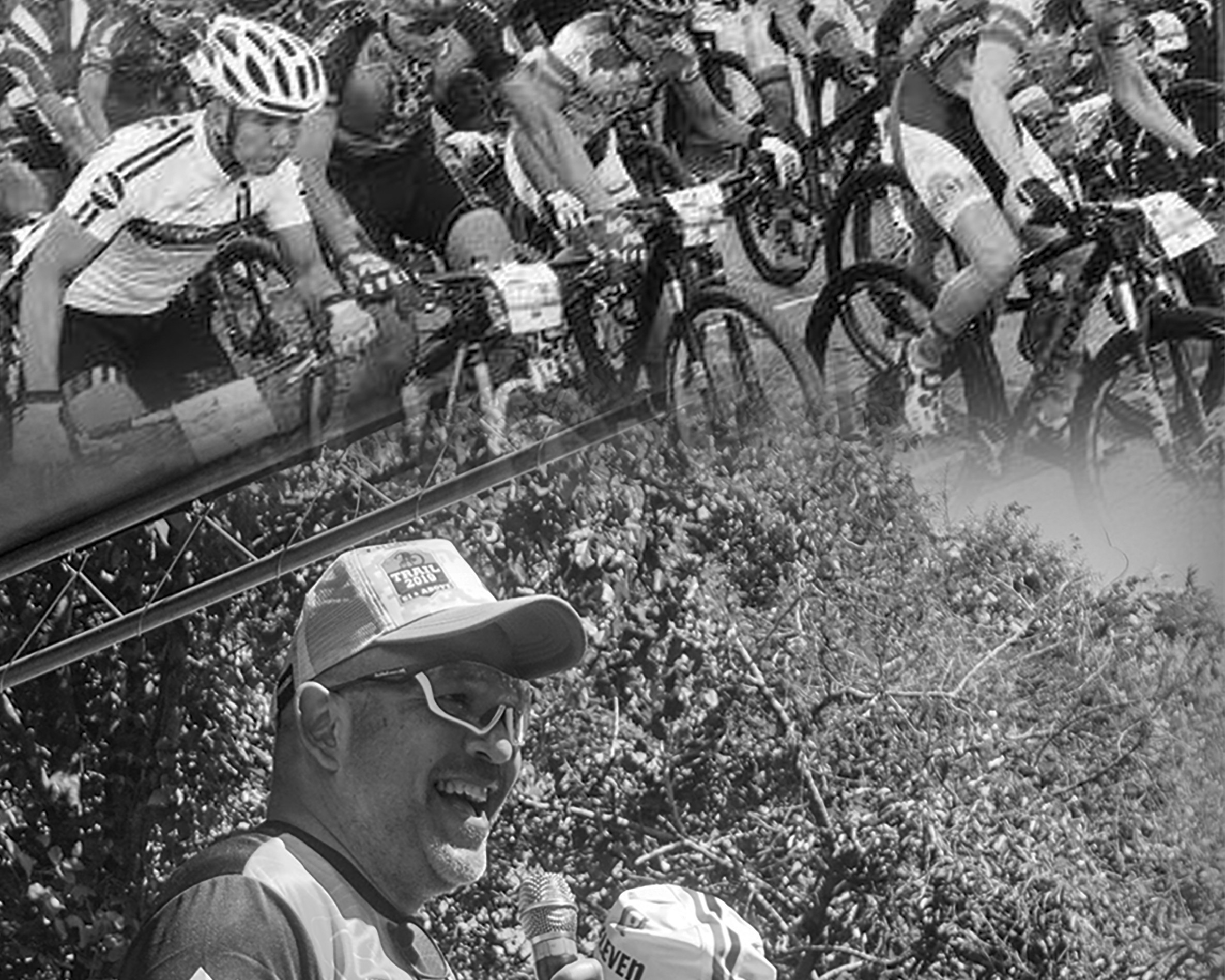
The 7-Eleven Trail race is the Philippines' largest annual MTB event held at Timberland Heights, San Mateo, Rizal attracting 1,500 to 2,000 riders each year. It's more than a race, it's a true test of skill and endurance on a course built by riders, for riders.
2014
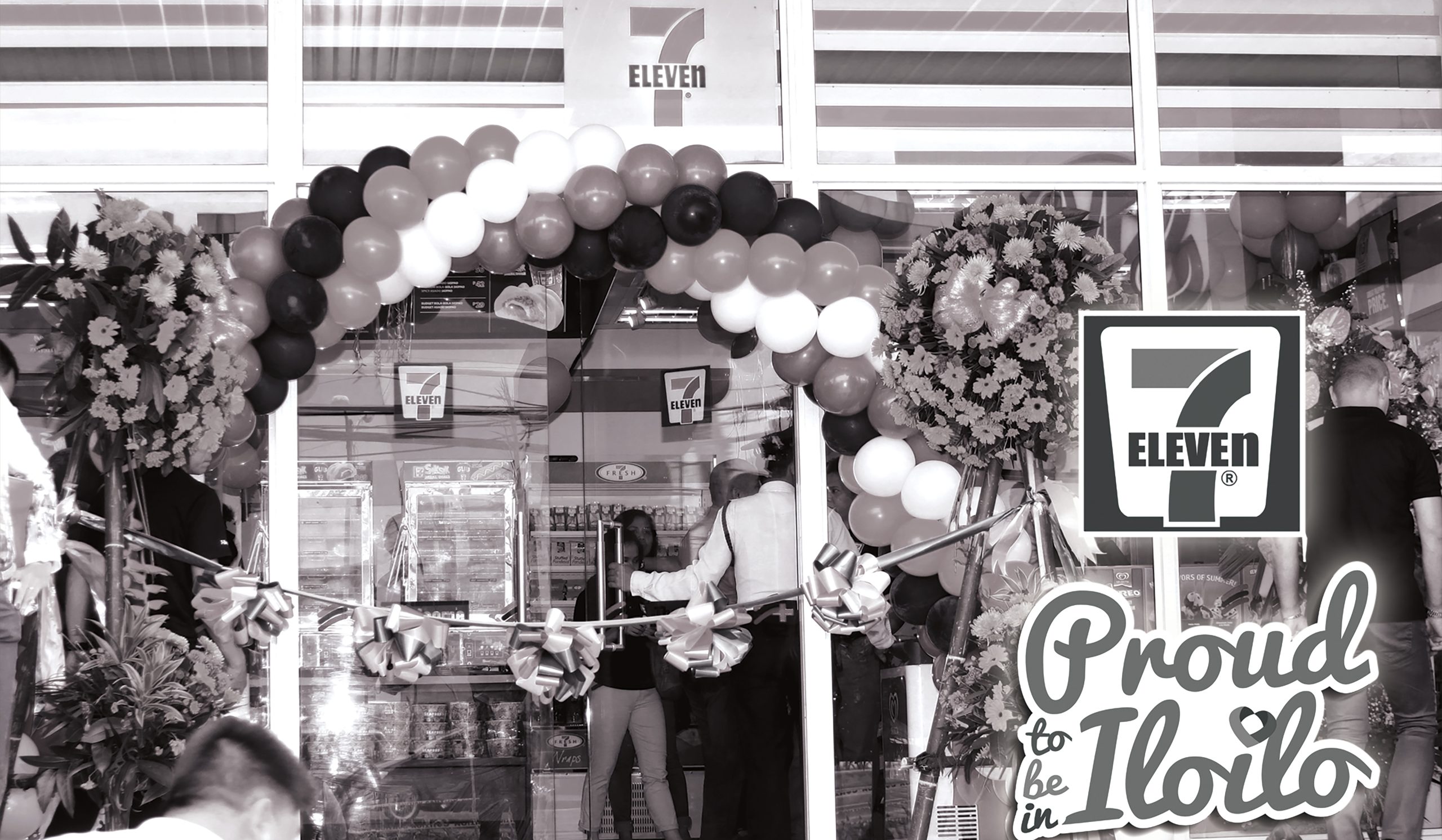
PSC continues its aggressive expansion plans in the Visayas region by opening six 7-Eleven stores in Iloilo City, the City of Love.
2015
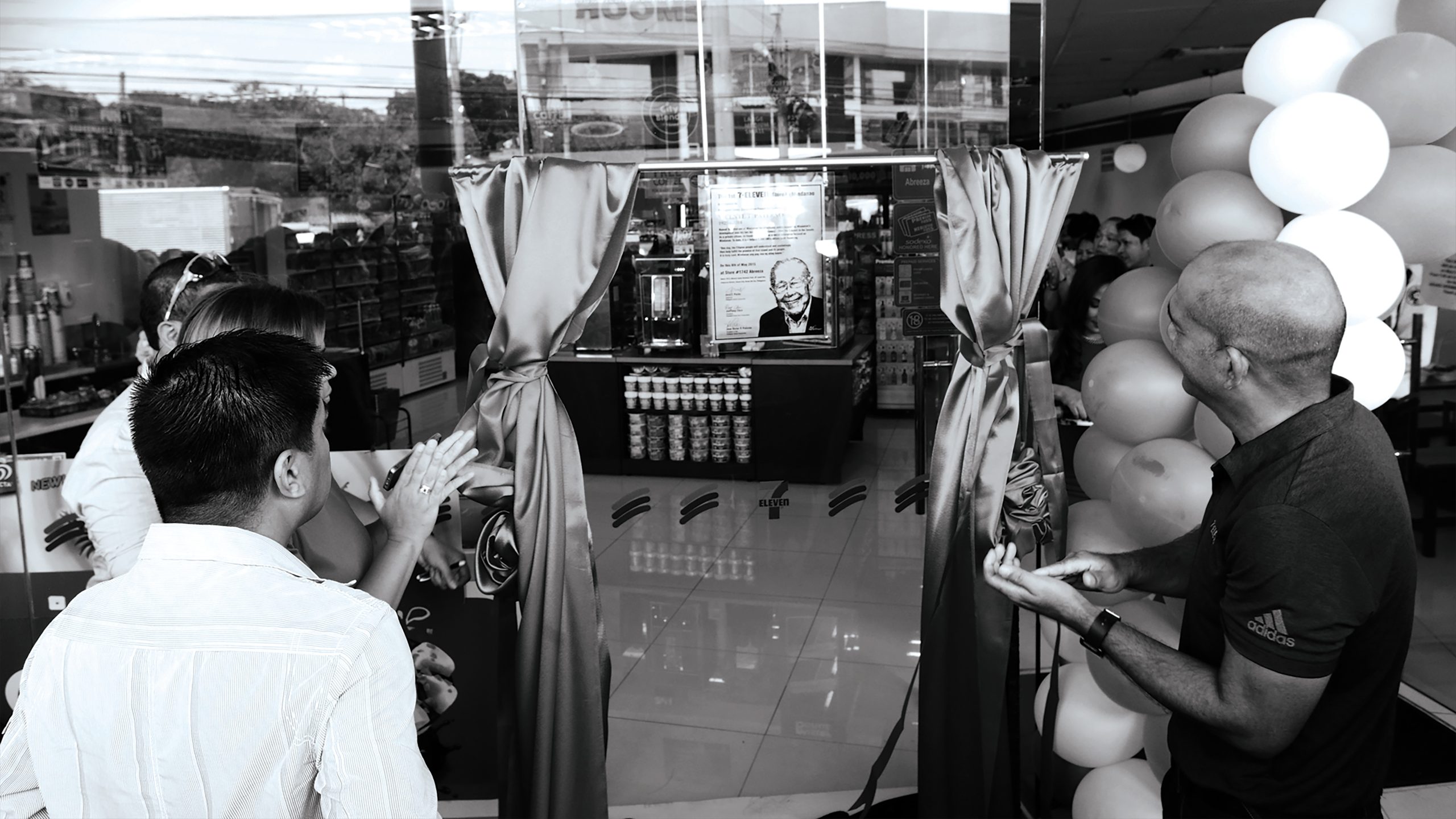
7-Eleven goes nationwide and lands on Davao's shores on May 8, 2015 with its first Mindanao store dedicated to late chairman Vicente T. Paterno.
2016
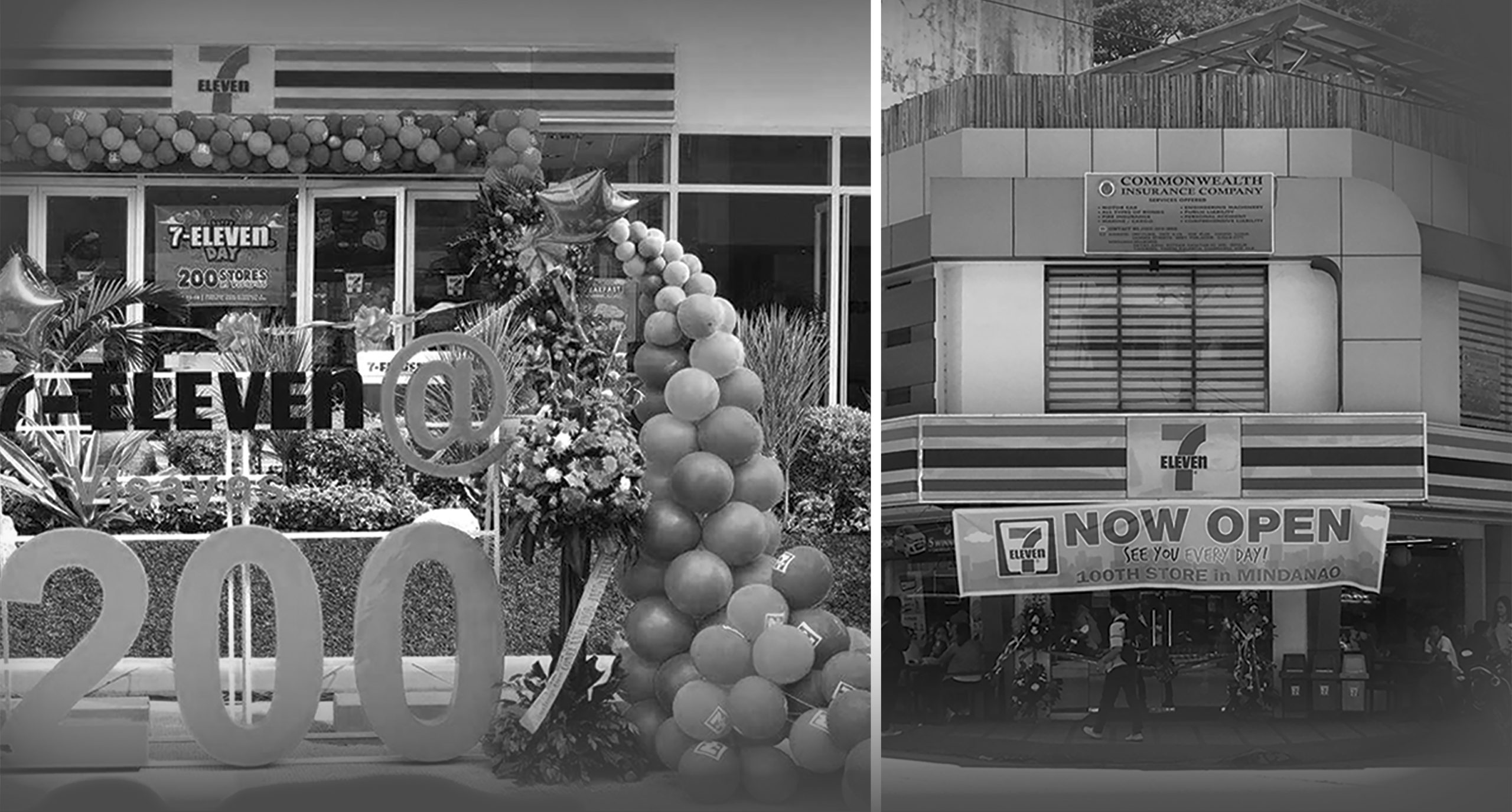
The 200th store in Visayas opened on July 11, 2026 at Mandaue City, Cebu and the 100th store in Mindanao opened on December 6, 2016 at Iligan City, Lanao Del Norte.
2017
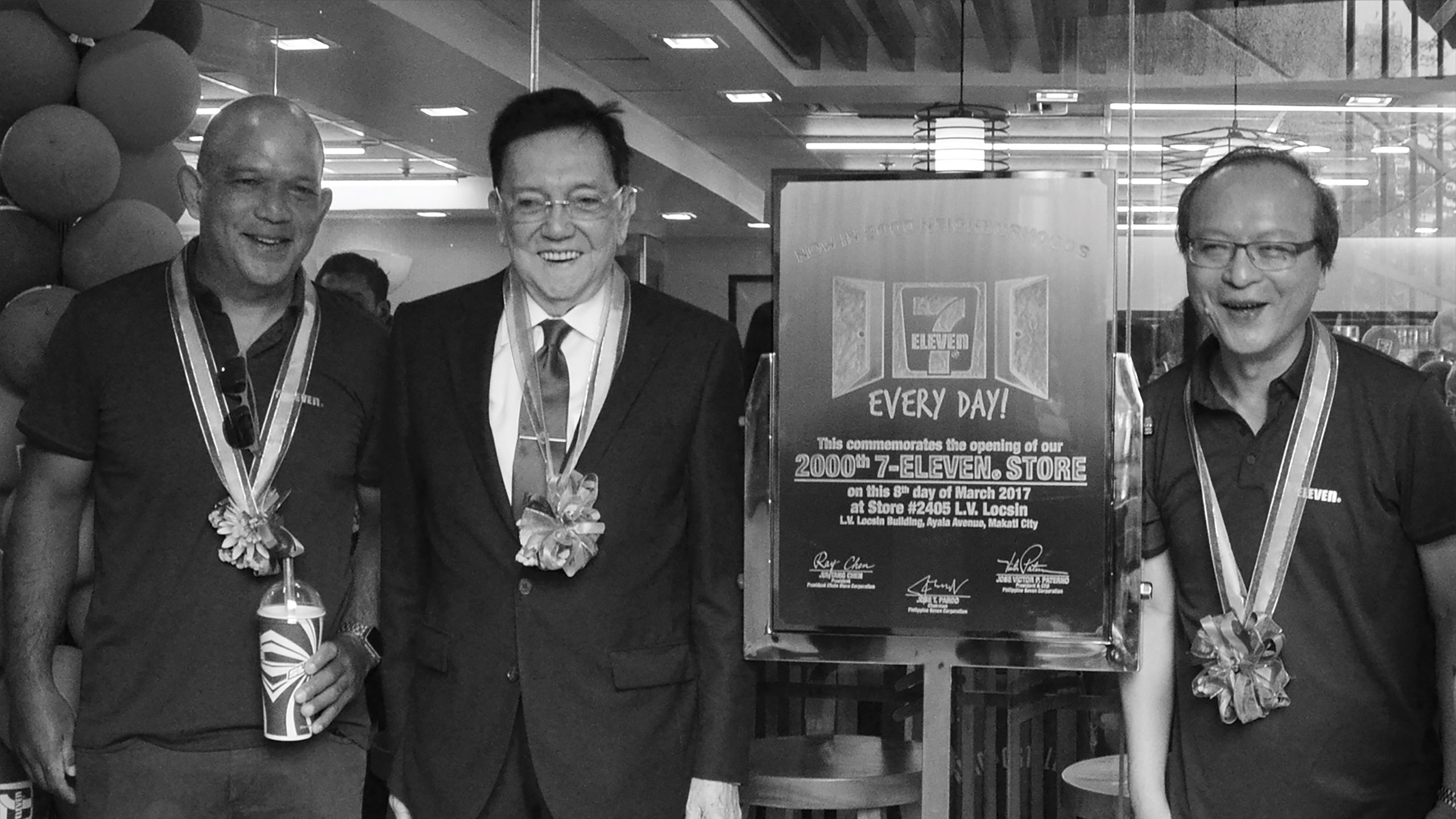
The 2000th store opened its doors on March 8, 2017 at the L.V. Locsin Building, 6752 Makati Avenue, Legazpi Village, Makati City.
2021
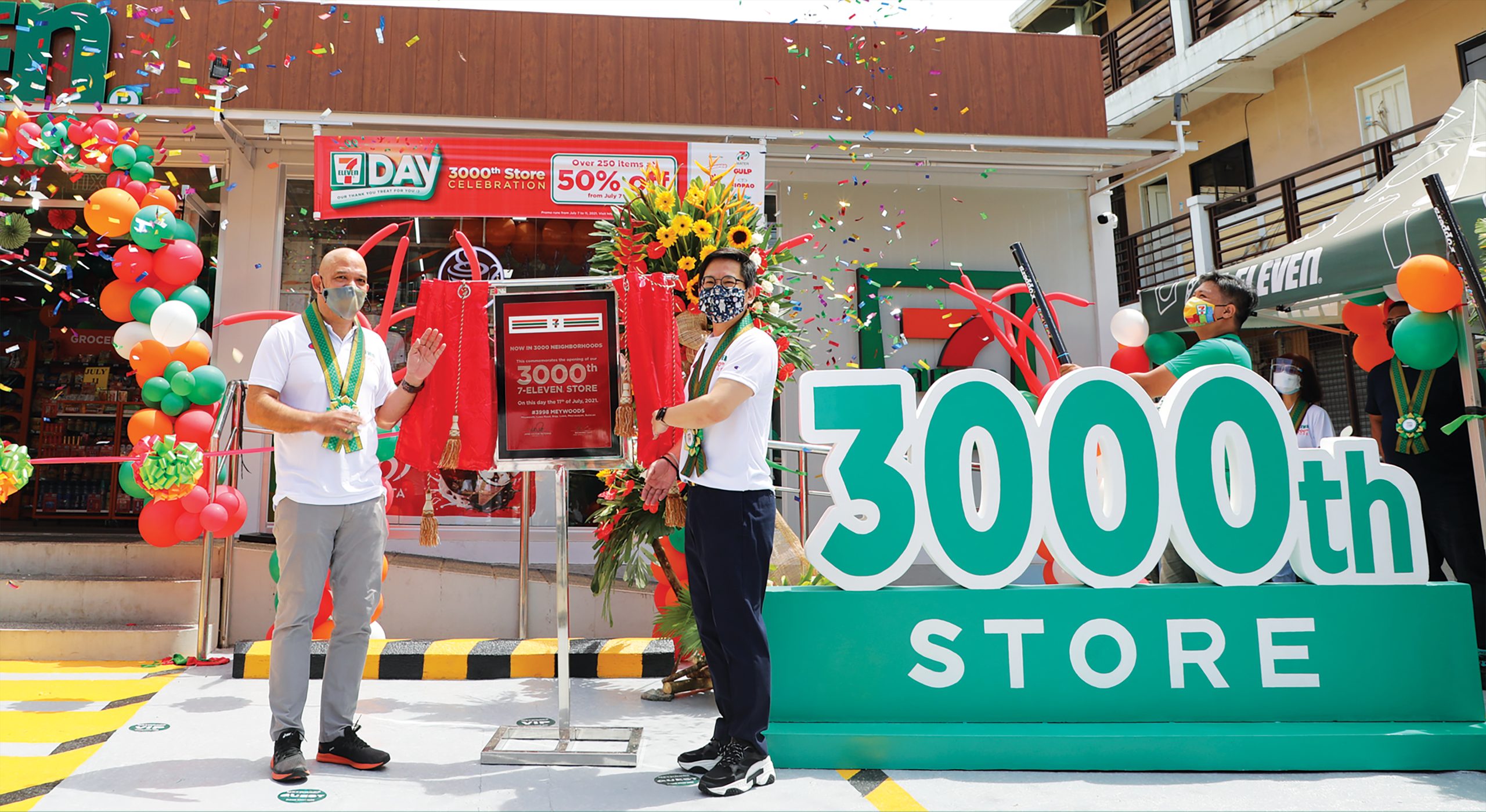
The 3000th store is opened in Meywoods, Lawa Road, Brgy. Lawa, Meycauayan, Bulacan.
2021
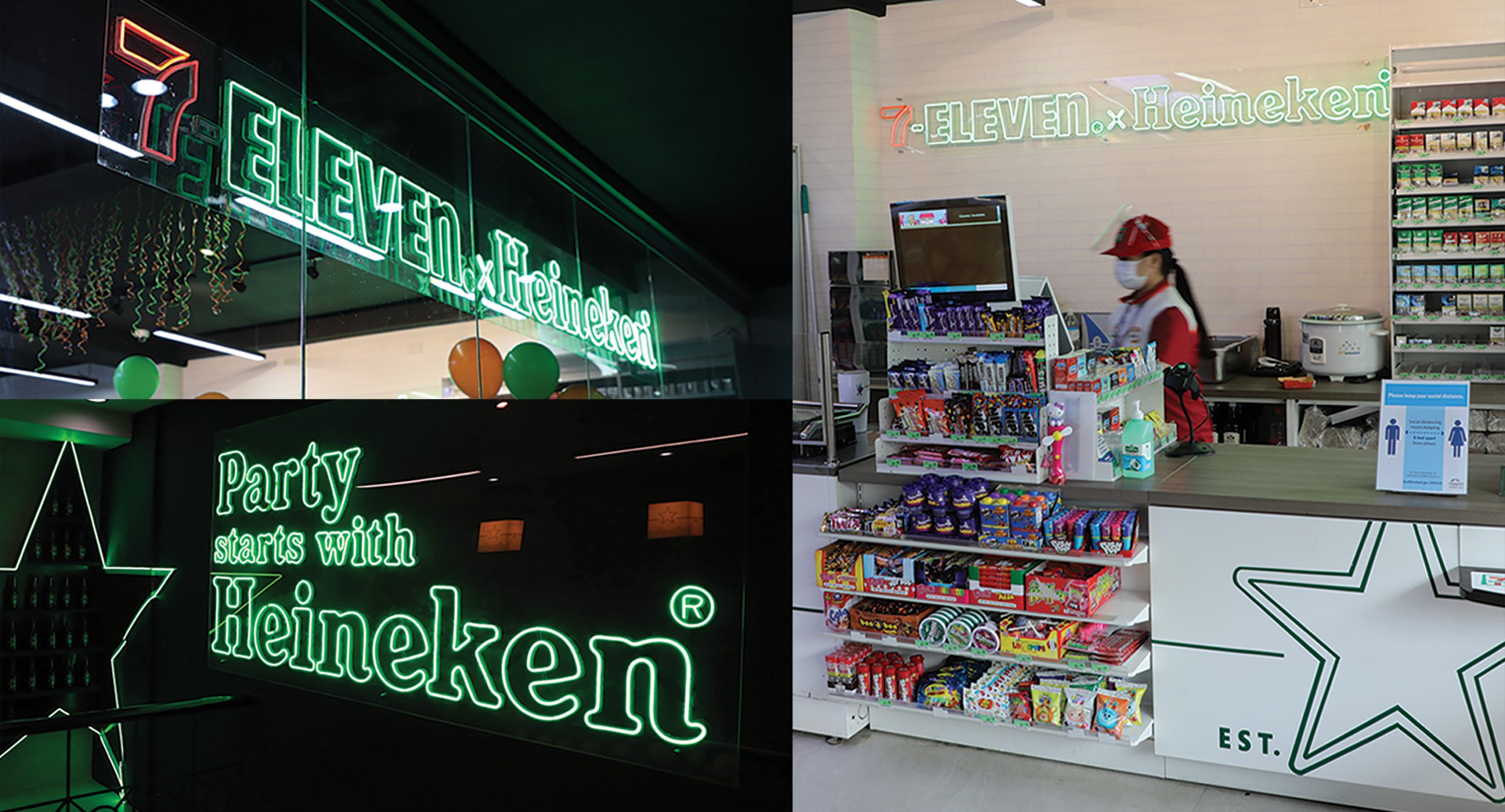
The 7-Eleven X Heineken concept store is opened at Tomas Morato, Quezon City
2021
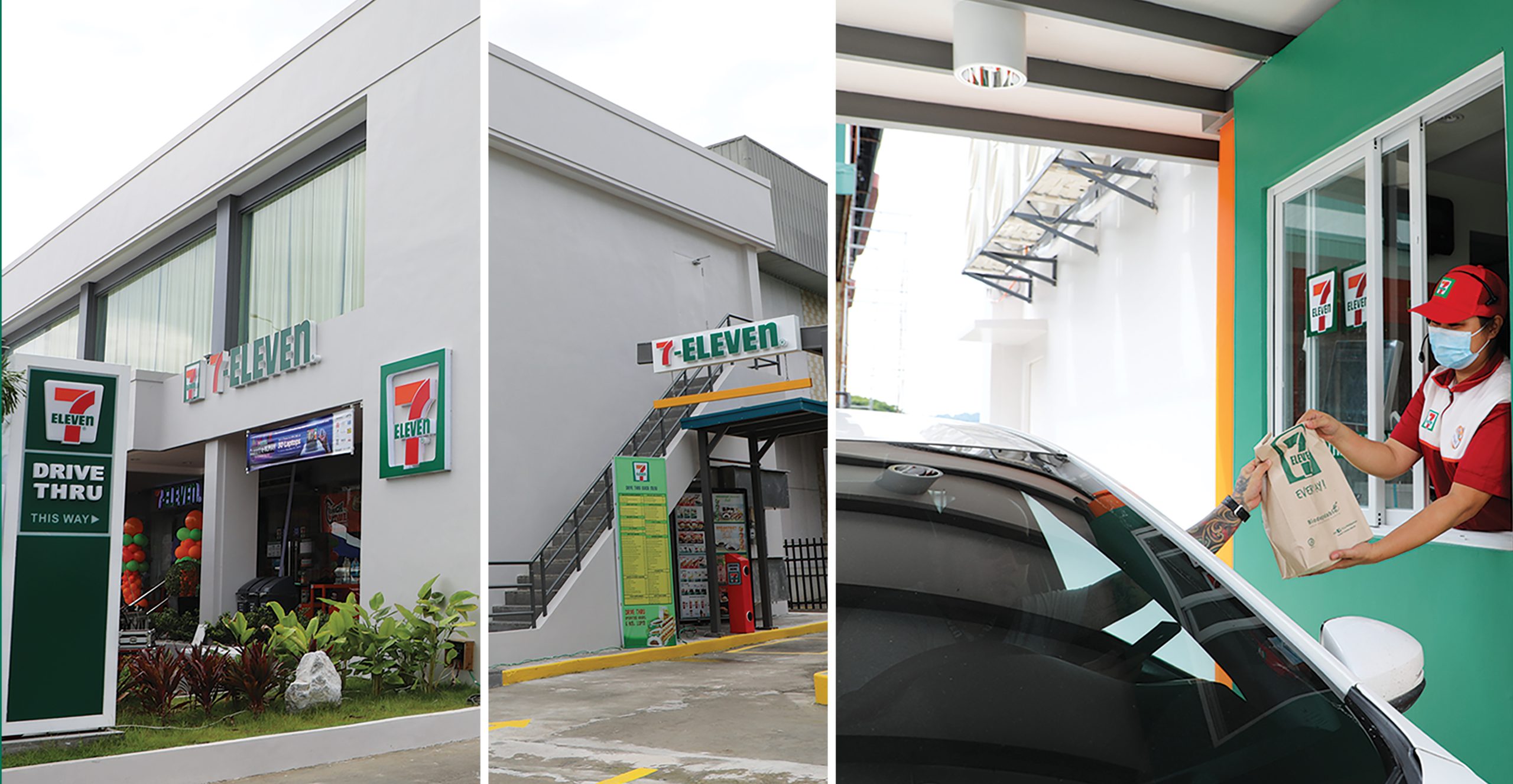
1st 7-Eleven drive thru store in the Philippines is opened at Lot 29B Subic Bay Gateway Park, Olongapo City.
2021
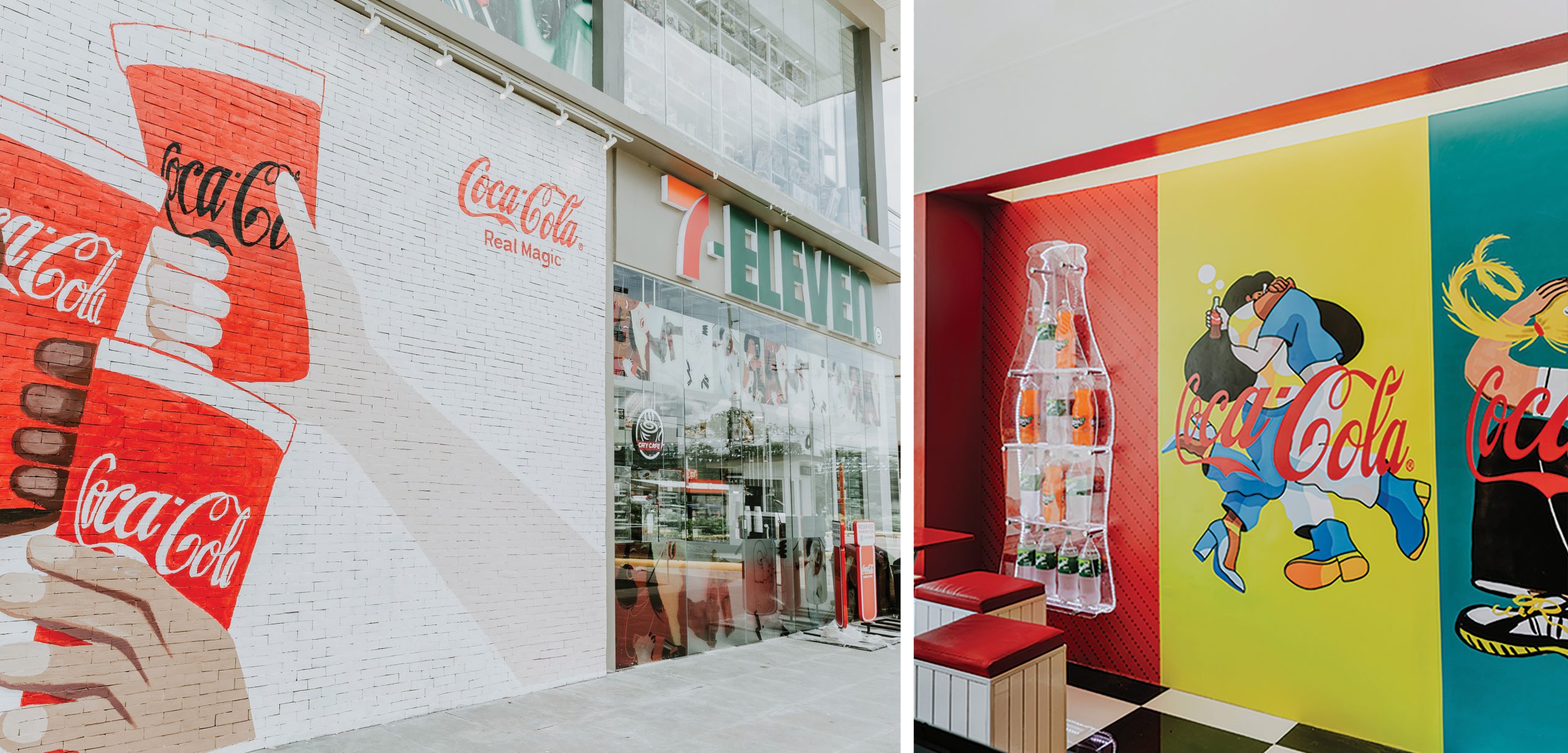
7-Eleven X Coca-Cola concept store is opened at LG Garden Walk, Circumferential Road, Mactan, Lapu-Lapu City, Cebu
2023
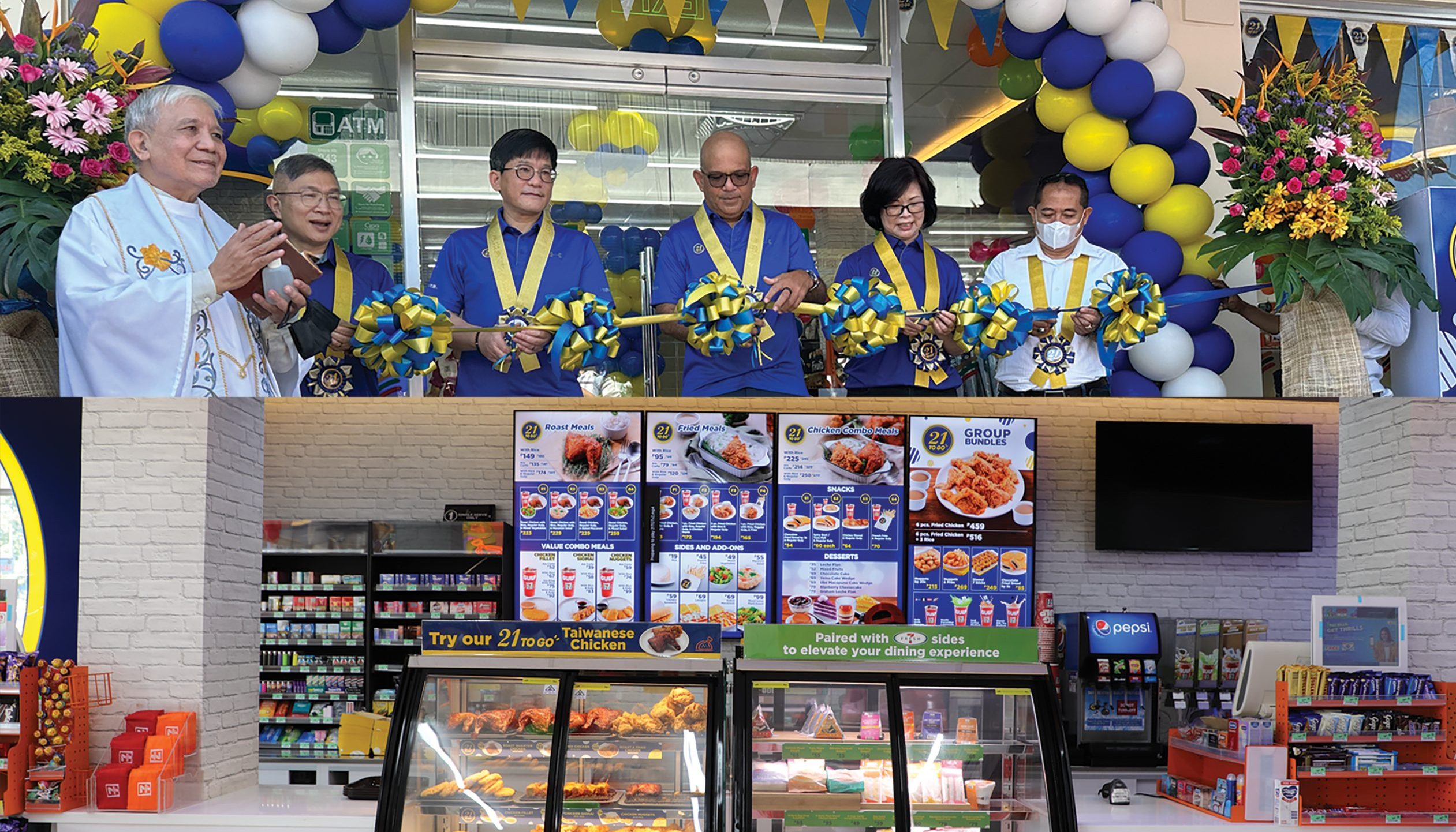
7-Eleven X 21TOGO concept store opens at Moreland Bldg., Merville Access Rd. Cor. West Service Rd., Parañaque City.
2023
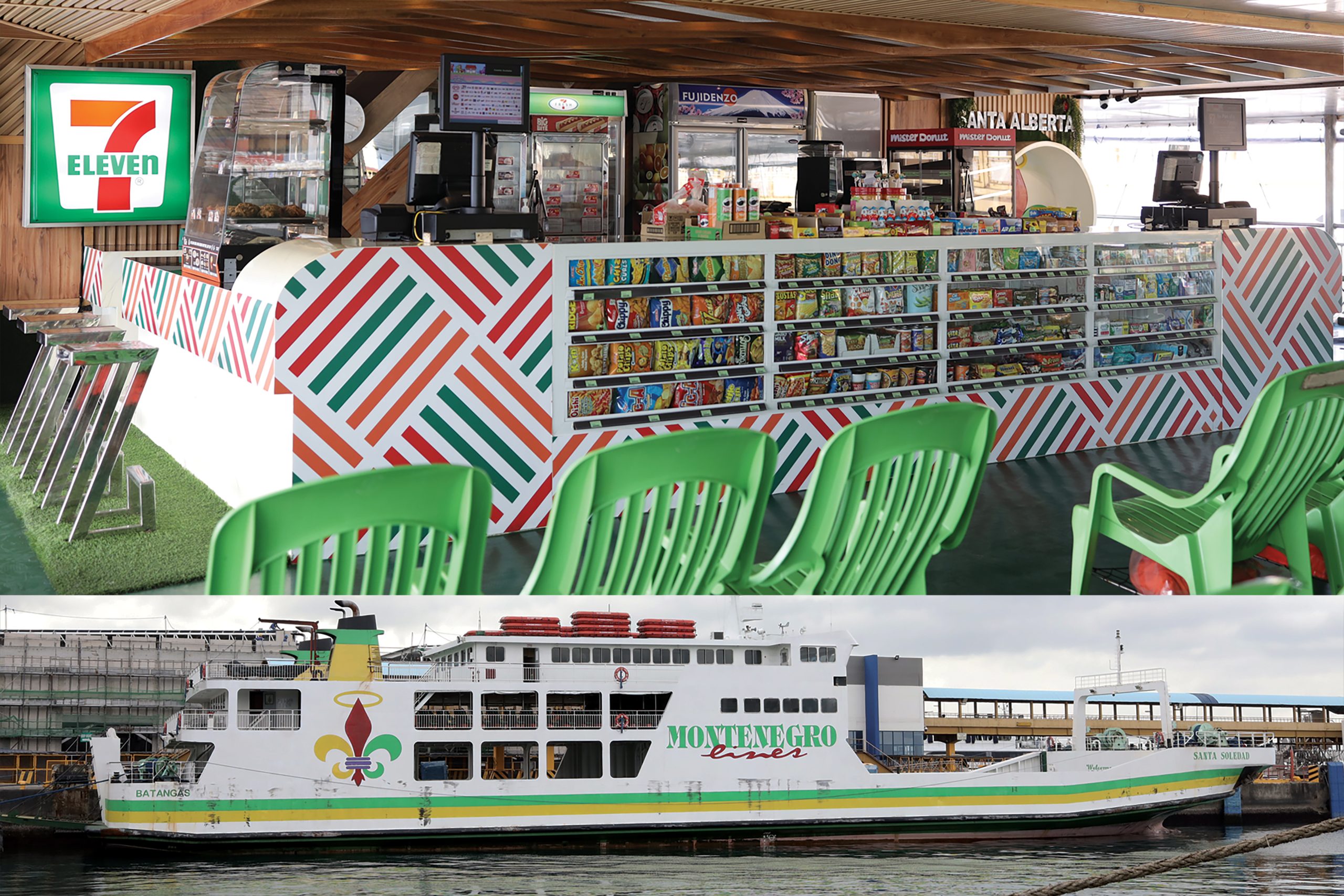
7-Eleven Montenegro Lines is the first 7-Eleven store established within a ferryboat.
2023
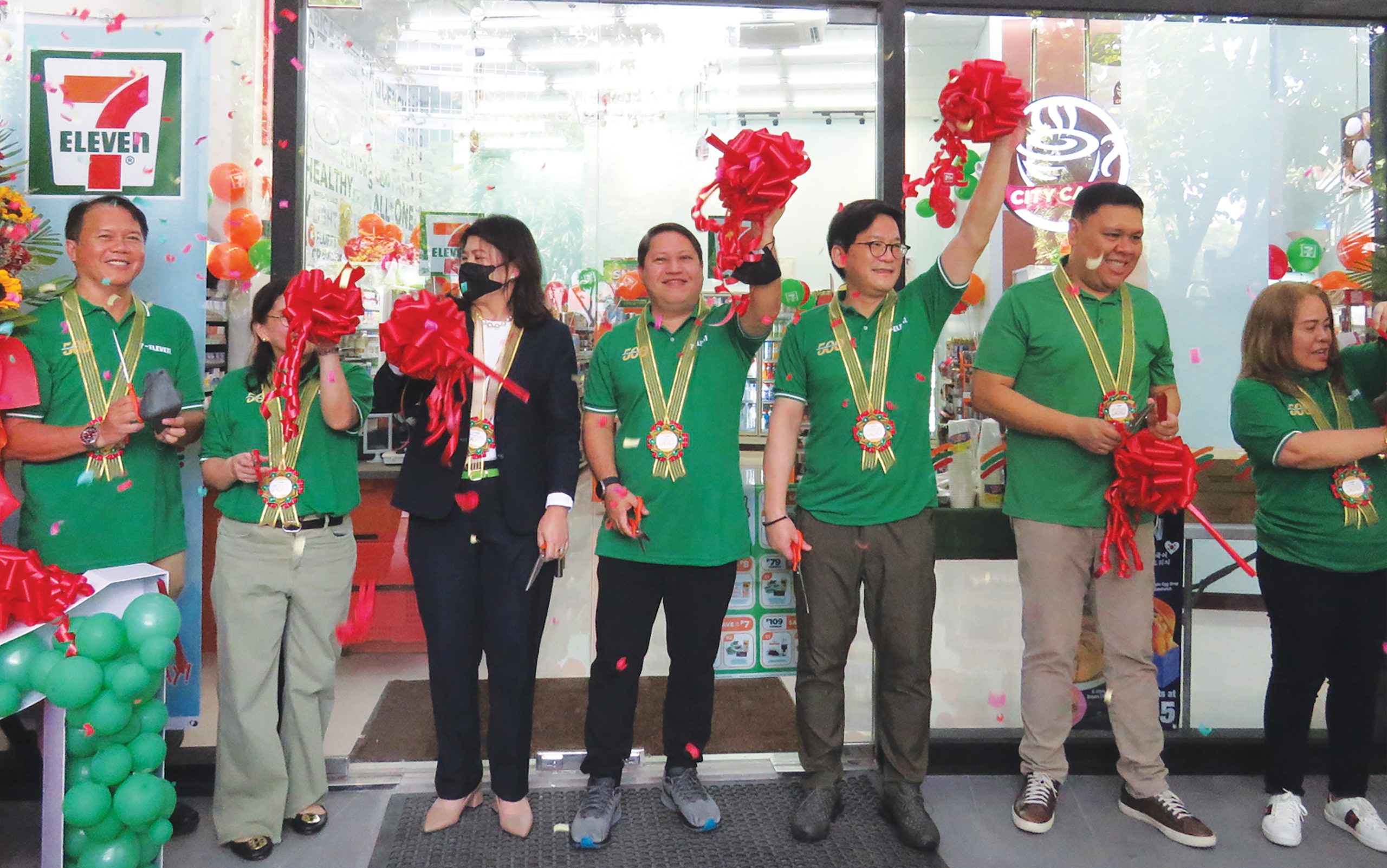
The 500th store in Visayas opens at Hop Inn Cebu, Samar Loop Street, Ayala Business Park, Cebu City.
2024
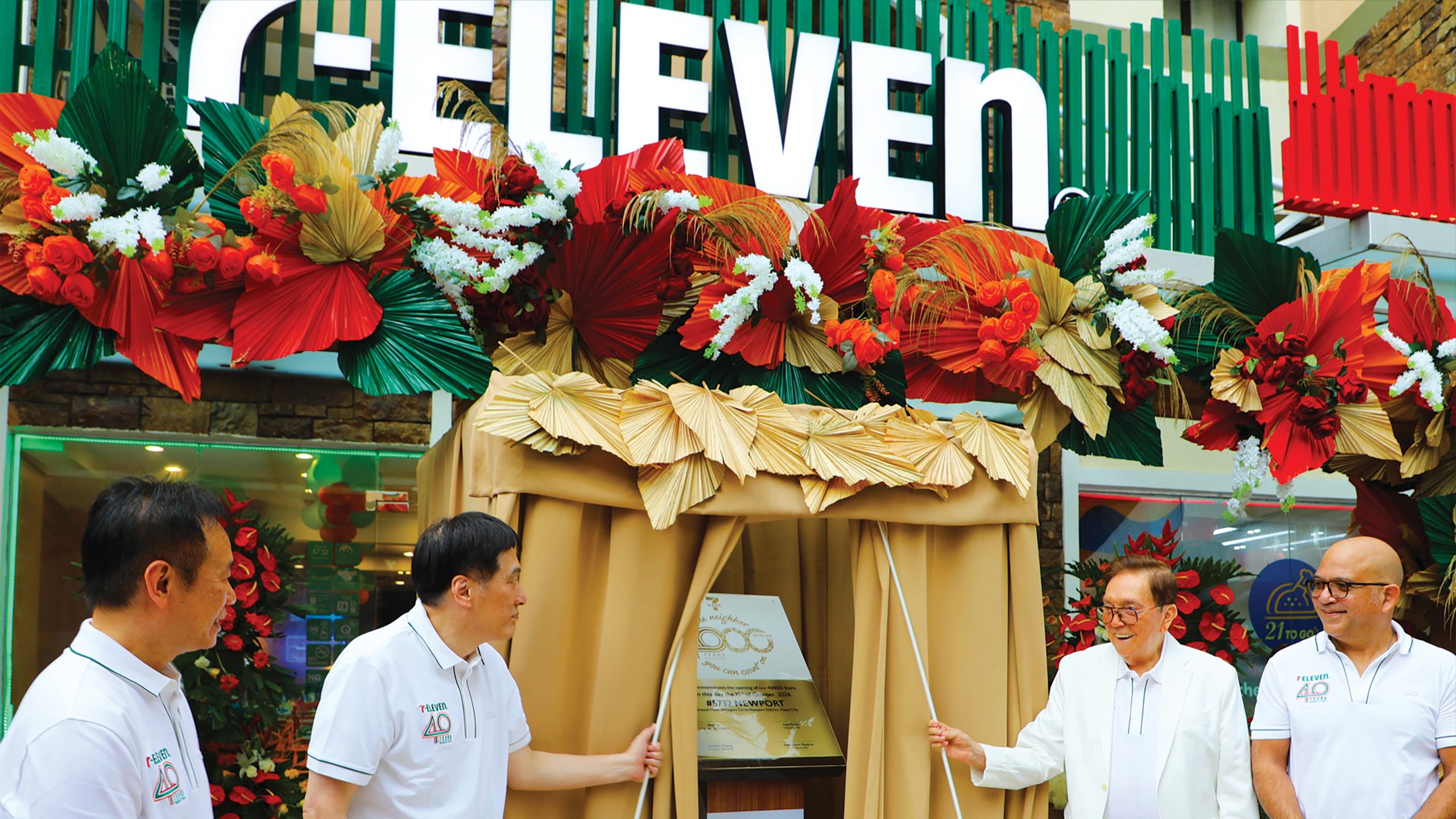
PSC celebrates 40 years in the Philippines along with the opening of the 4000th store at Ground Floor, Newport Circle, Newport District, Pasay City.
2025
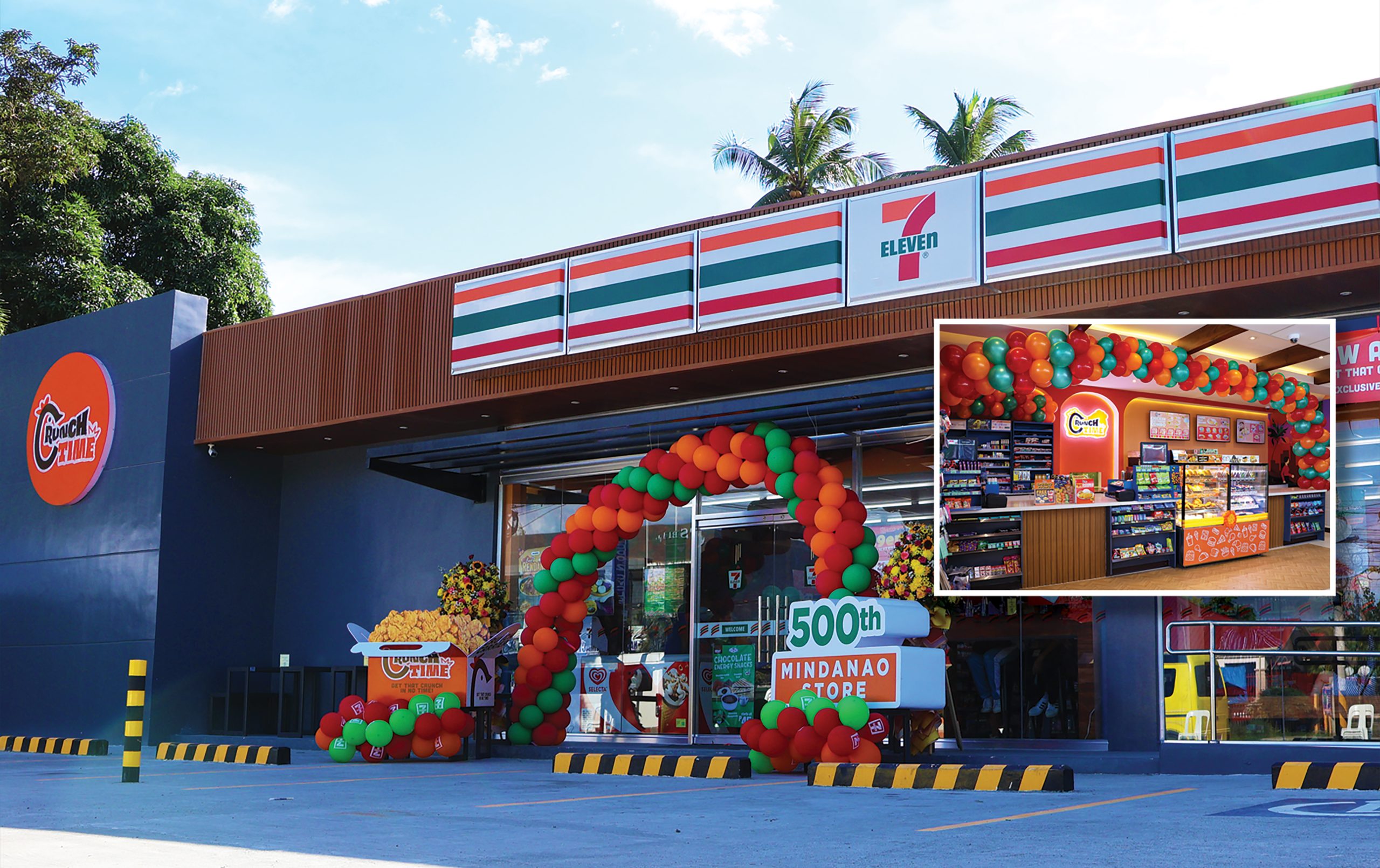
The 500th store in Mindanao opens at Apokon Road, Brgy. Apokon, Tagum City, Davao Del Norte.
The First 7 Years
On October 26, 1982, Philippine Seven Corp. (PSC) acquired the license agreement to use the 7-Eleven Convenience Store system in the entire Philippines from Southland Corporation of Dallas, Texas. After a month, PSC was registered with SEC on 29 November 1982. The incorporators were Jose T. Pardo, Vicente T. Paterno and Francisco R. Sibal. The company’s chief mission was to introduce an entirely new retailing concept to the Filipino consumers, i.e. operating a chain of 24-hours convenience stores. The first corporate office was located at the ninth floor of the Century Tower building in Salcedo Village, Makati City.
In order to apply Southland technology in all phases of managing a 7-Eleven convenience store, PSC sent five of its employees to various Southland installations in the US. The so-called Five-Man Team was consisted by Francisco R. Sibal, Executive Vice President; Ramon de Jesus, General Manager; Jose Blanch, Merchandising Manager; Wilfredo Villanueva, Accounting Manager; and Teodoro Wenceslao, Store Operations Manager. They left on February 15, 1983 to undergo a five-week in-depth training in their respective fields. Upon their return to the country, the Five-Man Team immediately set out to practice what they’ve learned from the functional training: site selection, design and construction of the first 7-Eleven store, negotiation with suppliers, ordering of equipments, recruitment and training of first batch of employees.
The assassination of Ninoy Aquino at the Manila International Airport on August 21, 1983 triggered the steady deterioration of the economic and political situation in the country. In spite of the bleak state of the market, PSC decided to proceed with the 7-Eleven project. On this account, the company needed fresh capital to build its first two stores. The Board of Directors increased their respective equity contributions in PSC and invited two outstanding businessmen, Mr. Jorge L. Araneta and Mr. Ernesto B. Rufino Jr., to become new shareholders and directors of PSC.
Despite the aggravating political and economic adversities, PSC gamely opened its first 7-Eleven convenience store, located at the corner of EDSA and Kamias Streets in Kamuning, Quezon City, on February 29, 1984. This store proved to be a tough one as it weathered all types of calamities, the EDSA revolution, and coup’d’etats. The second 7-Eleven convenience store was opened at President Ave., BF Homes, Parañaque, which was adjacent to the entrance of a posh subdivision, in April 1984. Having been able to open two stores within the same year, PSC was able to make necessary comparisons in the operations of its stores. It has learned that the primary customers of 7-Eleven stores came from the middle class: the salaried, busy employee who preferred a quick fix, while on his/her way home or to the office.
Because PSC steadily lost money during the years of 1984 to 1985, and due to the outrageous impossibility of securing bank loans, Francis R. Sibal was compelled to sell his share in the company and relinquish his responsibilities as executive vice president and managing director. His duties as Managing director was assumed by Mr. Vicente Paterno, while his responsibility for external affairs was taken over by Mr. Jose T. Pardo.
To infuse additional capital into the company, PSC sought the assistance of a friendly large Philippine organization who later offered a substantial semi equity term loan. Because of this, the company had adequate funds to open its third 7-Eleven convenience store at the corner of Harrison and Libertad Streets in Pasay City in October 1985, and patterned it to the characteristics of the Kamias branch. Management also came up with a clever leasing scheme wherein the lender participates in store profit when an individual store achieves higher than target sales volume. This was an effective way to source out funds for the construction of more stores. The first 7-Eleven Convenience Store built through this scheme was the branch located in Nagtahan Rotonda, at Santa Mesa, Manila.
On May 19, 1988, PSC’s sister company, Philippine Seven Properties Corporation (PSPC) was registered with SEC, and its incorporators were Manuel Agustines, Jorge Araneta, Jose Pardo, Vicente Paterno, and Alfredo Ramos. PSPC undermined the difficulties posed by the Constitution, and made it easier for PSC to raise money through acceptance of foreign and corporate investments. PSPC was able to successfully generate additional funds which were used by PSC in the construction of six stores in 1988, and five stores in 1989. Indeed, a tremendous blast of enthusiastic action from PSC Management.
Though still inexperienced in the field of the convenience store industry, PSC showed remarkable results. In fact, according to Southland’s technical representatives, PSC’s 7-Eleven stores compared favorably with other 7-Eleven stores anywhere in the world. The stores were clean, comfortable, and the ambience was very inviting and pleasant. Surely, the company has learned its lessons well.
